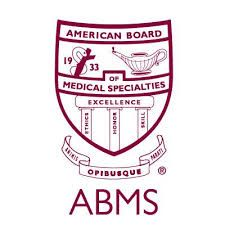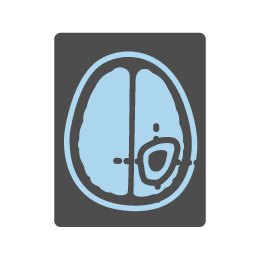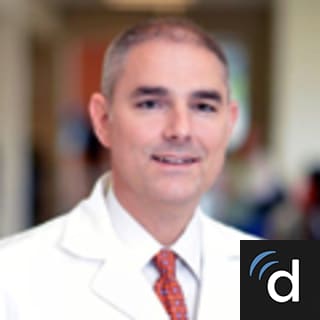
David Roy Gius MD MD, PhD
Breast Cancer
Professor, Department of Radiation Oncology, Assistant Dean of Research Joe R. & Teresa Lozano Long School of Medicine, Associate Cancer Center Director The Mays Cancer Center at UT Health San Antonio
Join to View Full Profile
7979 Wurzbach RoadSan Antonio, TX 78229
Phone+1 210-450-5648
Dr. Gius is on Doximity
As a Doximity member you'll join over two million verified healthcare professionals in a private, secure network.
- Gain access to free telehealth tools, such as our “call shielding” and one-way patient texting.
- Connect with colleagues in the same hospital or clinic.
- Read the latest clinical news, personalized to your specialty.
Summary
- The central theme of the laboratory is the potential relationship of intracellular pro-proliferative / pro-survival factors and how tumor cells respond to therapeutic modalities. The overarching goal of my research is an extension of the hypothesis that tumor cells use pre-existing pro-survival signaling pathways, up-regulated as a result of transformation or tumor micro-environment, to evade the damaging and cytotoxic effects of anti-cancer agents. These signaling factors are involved in the transmission of inter- and intracellular information through multiple transduction cascades and it has been suggested that one function is the activation of preprogrammed reparative or protective cellular processes responding to intracellular stress. Tumor cells likely activate these pathways responding to dys-regulated cell division and the increased demands on multiple cellular processes including increased replication, transcription, translation, protein trafficking and the production of metabolites (oxidative stress) that must be scavenged to prevent cell damage. Thus, we hypothesize that specific pro-repair and pro-survival pathways, alone and likely in combination, and their upstream signaling factors are potential molecular targets to improve the cytotoxic effects of anti-cancer agents including but to ionizing radiation. These challenges have led our laboratory to concentrate its efforts into the investigation of the mechanistic connection between aging, cellular and/or mitochondrial metabolism, and carcinogenesis focusing on the Sirtuin gene family and the connection between this protein family and breast carcinogenesis and breast cancer tumor cell resistance.
Education & Training
 Washington University/B-JH/SLCH ConsortiumResidency, Radiation Oncology, 1994 - 1997
Washington University/B-JH/SLCH ConsortiumResidency, Radiation Oncology, 1994 - 1997 University of MichiganResidency, Radiation Oncology, 1993 - 1994
University of MichiganResidency, Radiation Oncology, 1993 - 1994 University of Chicago Medical CenterInternship, Preliminary Year, 1992 - 1993
University of Chicago Medical CenterInternship, Preliminary Year, 1992 - 1993 Loyola University Chicago Stritch School of MedicineClass of 1992
Loyola University Chicago Stritch School of MedicineClass of 1992 University of ChicagoPhD, Tumor Virology, 1985 - 1990
University of ChicagoPhD, Tumor Virology, 1985 - 1990 University of Illinois College of MedicineB.S., Chemistry, 1980 - 1983
University of Illinois College of MedicineB.S., Chemistry, 1980 - 1983
Certifications & Licensure
 TX State Medical License 2020 - 2027
TX State Medical License 2020 - 2027 IL State Medical License 2012 - 2020
IL State Medical License 2012 - 2020 TN State Medical License 2010 - 2012
TN State Medical License 2010 - 2012 MI State Medical License 1993 - 1994
MI State Medical License 1993 - 1994 American Board of Radiology Radiation Oncology
American Board of Radiology Radiation Oncology
Awards, Honors, & Recognition
- Established Investigator Award Recruitment Award Chemo-Prevention Research Institute of Texas CPRIT, 2020
- Member Alpha Omega Alpha (AOA) Honor Medical Society, 2014
- Alpha Omega Alpha 2014
- Join now to see all
Publications & Presentations
PubMed
- Divergent sex-specific effects on a ketogenic diet: Male, but not female, mice exhibit oxidative stress and cellular senescence.Sung-Jen Wei, Joseph Schell, Wei Qian, Martin Silguero, Agne Baseviciene
Cell Reports. 2025-07-17 - 2 citationsMitochondrial ACSS1-K635 acetylation knock-in mice exhibit altered liver lipid metabolism on a ketogenic diet.Guogang Xu, Joseph Schell, Songhua Quan, Yucheng Gao, Sung-Jen Wei
Free Radical Biology & Medicine. 2025-05-01 - MnSOD non-acetylation mimic knock-in mice exhibit dilated cardiomyopathy.Joseph R Schell, Sung-Jen Wei, Jun Zhang, Rolando Trevino Jr, Wan Hsi Chen
Free Radical Biology & Medicine. 2025-03-01
Journal Articles
- ATRIP Deacetylation by SIRT2 Drives ATR Checkpoint Activation by Promoting Binding to RPA-ssDNAZhang H, Li X, Daddacha W, Pan Y, Madden WZ, Park S-H, Duong DM, Xie M, Yu1 B, Warren MD, Liu EA, Deng X, Seyfried NT, Yu DS, Cell Reports, 1/1/2016
- G Protein-Coupled Bile Acid Receptor TGR5 Activation Inhibits Kidney Disease in Obesity and DiabetesWang XX, Edelstein MH, Gafter U, Qiu L, Luo Y, Dobrinskikh E, Lucia S, Adorini L, D'Agati VD, Levi J, Rosenberg A, Kopp JB, Saleem MA, Levi M, J Am Soc Nephrology, 1/30/2015
- Honokiol is an activator of SIRT3 that protects the heart from pressure overload mediated cardiac hypertrophy in micePillai VB, Samant S, Sundaresan NR, Raghuraman H, Kim G, Bonner M, Arbiser J, Gupta MP, Nature Communications, 1/1/2015
- Join now to see all
Books/Book Chapters
Press Mentions
 Keto Debate: Is Low-Carb a Game Changer or a Risky Gamble?June 2nd, 2025
Keto Debate: Is Low-Carb a Game Changer or a Risky Gamble?June 2nd, 2025 Mays Cancer Center Radiation Oncologist Recognized as Outstanding Mentor to Next Generation LeadersOctober 11th, 2024
Mays Cancer Center Radiation Oncologist Recognized as Outstanding Mentor to Next Generation LeadersOctober 11th, 2024 Study: Dysregulation in Bioenergetic Process Linked to Rapid Onset of Non-Alcoholic Fatty Liver DiseaseAugust 20th, 2024
Study: Dysregulation in Bioenergetic Process Linked to Rapid Onset of Non-Alcoholic Fatty Liver DiseaseAugust 20th, 2024- Join now to see all
Grant Support
- Loss Of Mtsirt3, Decreased Mnsod Activity, And IR Induced Genomic InstabilityNational Cancer Institute2010–2012
- SIRT3 Is A Mitochondrial Tumor Suppressor In Er/Pr Positive Mammary TumorsNational Cancer Institute2011
- SIRT3 Is A Genomically Expressed Mitochondrial TSGNational Cancer Institute2010
- Epigenetic Regulation Of Gene Expression And Resistance In Tumor CellsNational Cancer Institute2010
- SIRT3 Is A Genomically Expressed Mitochondrial TSGDivision Of Basic Sciences - Nci2009
- Epigenetic Regulation Of Gene Expression And Resistance In Tumor CellsDivision Of Basic Sciences - Nci2009
- Epigenetic Regulation Of Gene Expression And Resistance In Tumor CellsNational Cancer Institute2008
- HSP90 As A Molecular Target For Ionizing RadiationNational Cancer Institute2007–2008
- Epigenetic Regulation Of Of Gene Expression And Multi-Modality Resistance In TumNational Cancer Institute2007
- Epigenetic Regulation Of Of Gene Expression And Multi-MoDivision Of Basic Sciences - Nci2005–2006
- HSP90 As A Molecular Target For Ionizing RadiationDivision Of Basic Sciences - Nci2003–2006
- Sulfhydryl Switches And Free-Radical Scavenger InvolvemeDivision Of Basic Sciences - Nci2003–2005
- Epigenetic Regulation Of Gene Expression And Multi-ModalDivision Of Basic Sciences - Nci2003
- Redox Signaling &Cell Response To Ionizing RceladiationDivision Of Basic Sciences - Nci2002
- Methylation Mechanism For Resistant PheotypeDivision Of Basic Sciences - Nci2002
- HSP As Molecular Targets For Nsaids And GeldanamycinDivision Of Basic Sciences - Nci2002
- GI Restriction Point &Tcr Activation Induced ApoptosisNational Cancer Institute1998–2000
- G1 Restriction Point &Tcr Activation Induced ApoptosisNational Cancer Institute1997
Professional Memberships
- Member
Other Languages
- Spanish
Viewing the full profile is available to verified healthcare professionals only.
Find your profile and take control of your online presence:









